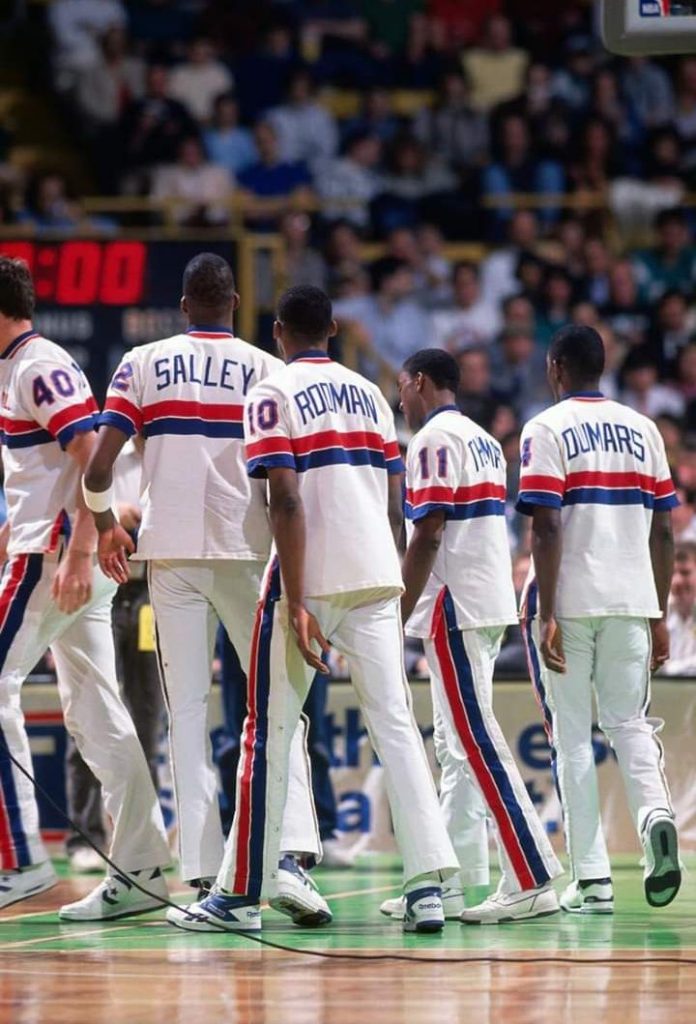
Fear: An emotion used to describe the state of a person or a group of people who are in a perceived state of danger. Fear can be used to intimidate people, and that could translate to sports, specifically if teams are entering a big game or are facing a team that is, on paper, much better than them.
Contributors Carolina Martinez and Jake Aimone debated whether fear gives teams a competitive advantage.
Yes
By Jake Aimone
Mentality is the key factor in a game nine times out of ten; your performance will match what you think will happen.
If you’re intimidated by any aspect of your opponent, you will probably play scared.
Take the Detroit Pistons in their bully ball era. They thrived on instilling fear into their opponents through physicality and brute force. Clearly, their efforts impacted the league as they won back-to-back NBA championships in 1989 and 1990.
As a team, if you can create a sense of doubt in your opposing team, you’ve already won the game, as it will be creeping in the back of their minds for the entirety of the contest. Not to mention, confidence levels are highly contagious and create a snowball effect.
If one of your teammates starts spouting off about the massive D-lineman or the blazing receiver, it’s in your head. You begin to wonder if your team can contain this opponent you haven’t seen yet. This starts the avalanche of hesitation that will destroy your confidence going into this game, thus providing the opposing side with a distinct mental advantage before you even hit the field.
No
By Carolina Martinez
Mind over matter is a staple of sports mentality, but fear and intimidation aren’t the sole reasons for a competitive advantage. If anything, they create an illusion of control and strength.
When a team competes knowing that their “edge” is by intimidating a team, the foundation of skill, confidence and cohesion doesn’t shine the way it should in sports. You are simply not getting better as an athlete or a team if you’re playing against opponents you know you can beat. An easy win doesn’t give you any personal gain, nor does it measure fundamental progress. You might as well fall into Little League and get a participation trophy.
Not only that, but the fear you may instill in others undermines performance consistency. It establishes a short-term high over long-term advantage. If a team’s success depends on intimidating others, that upper hand disappears when they face opponents who aren’t affected by it.
This isn’t a fixed argument because there is always going to be a team or an athlete who is the exception. For example, Jake illustrated the Detroit Pistons during their “bully ball era.” Well, as it turned out, the NBA changed its rules, introducing stricter foul rules and protecting offensive players. Detroit’s physical tactics started costing them games, and as skill increased in players, the Pistons’ daunting strategy backfired.
True competitive advantage comes from stable confidence in yourself, trust in your teammates and, most importantly, preparation.

